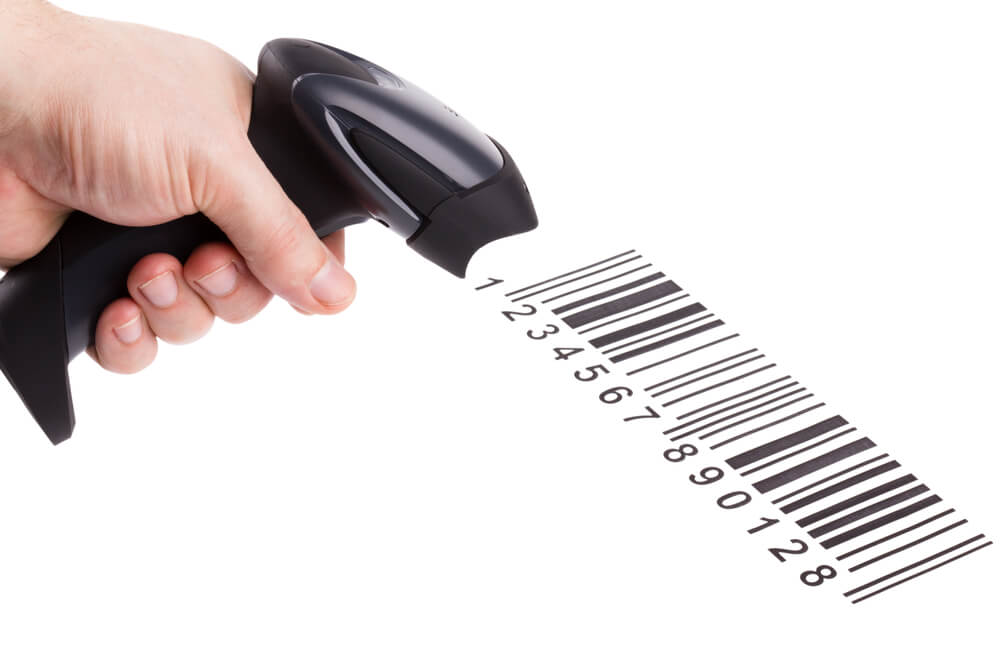Heavy-Duty Barcodes Scanners Built for Industrial Needs
Heavy-Duty Barcodes Scanners Built for Industrial Needs
Blog Article
Picking the Right Barcode Scanner for Your Organization Needs
Choosing the appropriate barcode scanner for your organization requires a nuanced understanding of your specific functional demands and ecological problems. Elements such as scanner type, speed, and compatibility with existing systems play a pivotal role in identifying the best choice.
Recognizing Barcode Scanner Types
When it pertains to picking a barcode scanner, recognizing the different types available is critical for conference details service requirements. Barcode scanners can be categorized right into a number of types, each designed for various applications and atmospheres.
Handheld scanners are the most common, providing mobility and convenience of use, making them suitable for retail and supply administration. They normally link using USB or Bluetooth, providing adaptability in operation. Fixed-mount scanners, on the various other hand, are created for high-volume scanning applications, typically found in production line or checkout counters. These scanners are placed in a stationary position, enabling for rapid scanning of numerous items in succession.
An additional type is the mobile computer system, which integrates scanning capabilities with computing power. These tools are optimal for area operations or warehouse monitoring, enabling data collection and real-time supply tracking. Furthermore, there are commercial scanners that are built to stand up to harsh atmospheres, such as severe temperatures or exposure to dirt and dampness.

Secret Attributes to Think About
What crucial attributes should businesses prioritize when selecting a barcode scanner? Scanning speed is vital, as faster scanners enhance functional performance, specifically in high-volume atmospheres. The scanner's ability to read different barcode styles is additionally important; ensure it sustains popular types like QR codes, UPC, and Code 128 to fit diverse stock items.
Sturdiness is another key feature, particularly for businesses in sturdy setups. Try to find designs that are built to hold up against declines, dust, and moisture. In addition, take into consideration the connectivity options available; whether you prefer USB, Bluetooth, or Wi-Fi, the best connectivity can boost combination with existing systems.

Analyzing Your Service Setting
To successfully choose a barcode scanner, services have to analyze their details functional environment. This assessment consists of assessing the physical format of the work area, the nature of the items being checked, and the typical problems under which scanning takes place. A retail environment may call for portable scanners that can quickly process deals at the checkout, while a storehouse setting may benefit from ruggedized scanners developed to withstand harsher problems.
In addition, consider the volume of scanning called for. High-throughput environments might demand innovative scanning technologies, such as fixed-position scanners or mobile phones that can operate efficiently in fast-paced circumstances. The integration abilities with existing stock monitoring systems also play an important duty; ensure the selected scanner can seamlessly connect with software platforms in operation.
Furthermore, analyze the potential for development and scalability. A scanner that satisfies present demands might not suffice as business expands. By thoroughly assessing these variables, companies can pick a barcode scanner that not only meets immediate demands however likewise supports lasting functional effectiveness and adaptability. This strategic strategy ultimately contributes to smoother procedures and improved productivity.
Budgeting for Your Scanner
Having actually examined the operational setting and determined the certain requirements for a barcode scanner, the next action entails cautious budgeting use this link to guarantee a smart economic investment. Establishing a budget starts with figuring out the overall prices related to the scanner, consisting of initial acquisition cost, operational costs, and prospective upkeep fees.
When choosing a barcode scanner, consider the series of readily available choices, from portable devices to fixed-position scanners, as costs can differ considerably. It is vital to balance price with functionality; choosing an extra affordable model might bring about enhanced operational inadequacies if it does not meet your service demands.
In addition to the hardware, element in expenses connected to software program, training, and potential upgrades. While it could be alluring to decrease upfront expenditure, purchasing a high quality scanner that straightens with your functional requirements can yield long-term cost savings with enhanced effectiveness and minimized downtime.
Last but not least, consider the complete price of possession, which incorporates the scanner's life-span and possible resale worth. By diligently intending your spending plan, you can ensure that your investment in a barcode scanner will certainly boost your functional performance and monetary performance.
Assimilation With Existing Equipment
Incorporating a barcode scanner with your existing systems is vital for optimizing its efficiency and guaranteeing smooth operations. barcodes scanners. A well-integrated scanner enhances process effectiveness, decreases errors, and speeds up information handling. When picking a barcode scanner, consider compatibility with your existing software program and hardware infrastructure, including your inventory monitoring systems, point-of-sale (POS) systems, and business resource preparation (ERP) remedies
Review whether the scanner utilizes conventional protocols such as USB, Bluetooth, or Wi-Fi, which can promote simple combination. Additionally, analyze whether the scanner's software application provides APIs or SDKs that allow for modification and combination with proprietary systems. This is specifically try here essential for businesses with special operational requirements.
Additionally, consider the scalability of the scanning remedy. As your service expands, your systems ought to be able to accommodate added scanners and manage increased data quantities without considerable reconfiguration. Ultimately, purchasing a barcode scanner that effortlessly integrates with your existing systems will produce lasting benefits, improving accuracy, performance, and total productivity within your operations. Put in the time to thoroughly evaluate recommended you read your combination requires prior to buying decision.

Final Thought
In final thought, selecting a proper barcode scanner requires an extensive analysis of different factors, including scanner kinds, vital features, and the certain business setting. The ideal barcode scanner offers as an important device in streamlining procedures and facilitating efficient supply administration.
Report this page